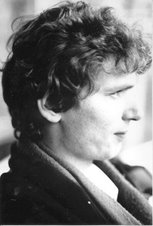 Seda
SedaAbove Sandra.
I posted earlier that this blog will go through several changes. Not only the host will be a different one, but some co bloggers will be added as well. Unfortunately, Derya will not be able to be a regular blogger anymore, due to her job which requires a lot of time. She also told me that she cannot gain access to typepad. We will figure out how we can solve this since we like here comments and opinion. Its annoying that wordpress is banned in Turkey, so is blogspot in Syria.
New co bloggers will be Seda, a Turkish friend living in Greece, and a dear friend of mine, for years, Sandra. Born in Suriname and raised up in the Netherlands.
And last but not least: Bea, who will move back to the USA will contribute as well.
Together with a Dutch in Armenia, and an Greek/Australian in Greece, we will have a nice team here.
New co bloggers will be Seda, a Turkish friend living in Greece, and a dear friend of mine, for years, Sandra. Born in Suriname and raised up in the Netherlands.
And last but not least: Bea, who will move back to the USA will contribute as well.
Together with a Dutch in Armenia, and an Greek/Australian in Greece, we will have a nice team here.
And there might be a chance that another 'yabanchi' will join this team.
Will keep you updated.





